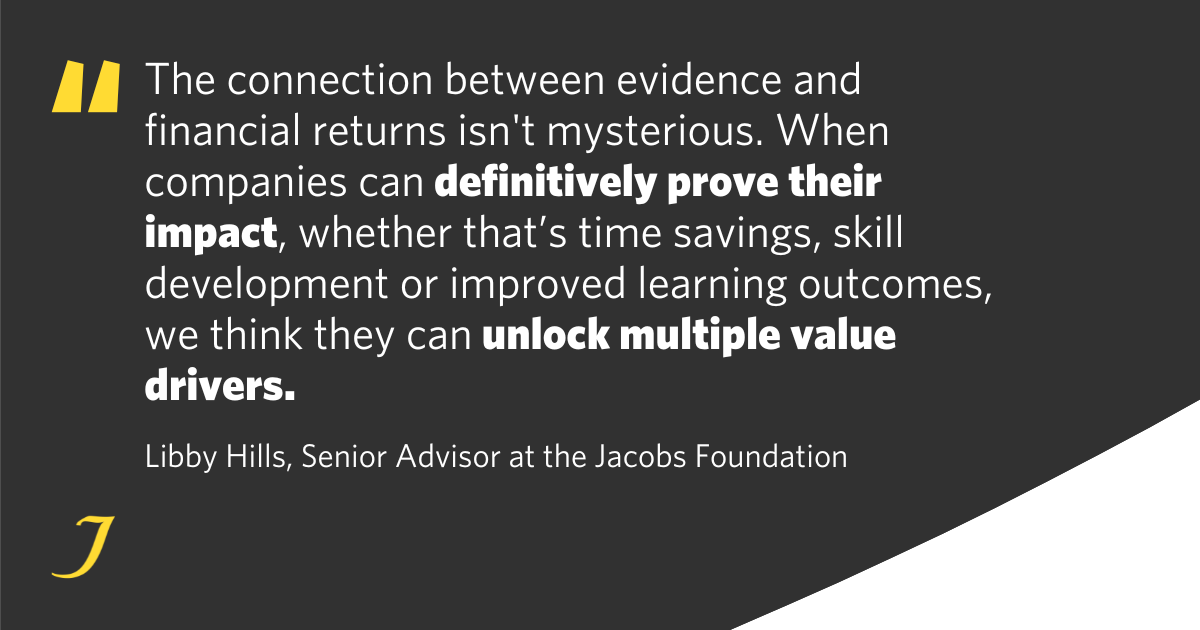Share Content
Article Link Copied
Evidence pays: why proof of impact drives EdTech success

In an evolving EdTech landscape, evidence is no longer just an academic exercise—it’s a commercial imperative. In a new guest article for Brighteye Ventures Sidekick, the Jacobs Foundation’s Libby Hills explores why proving that EdTech products work isn’t just beneficial for learners but also good for business.
Drawing from the Jacobs Foundation’s internal analysis, Libby highlights a compelling trend: EdTech companies that invest in evidence generation see stronger financial returns. In two of the Foundation’s EdTech funds, K-12 companies with evidence-backed products had 50-70% higher Multiple on Invested Capital (MOIC) ratios than those without evidence.
According to data from Teacher Tapp, 87% of teachers now want clear proof that EdTech works before adopting it—up from 79% in 2019. Policymakers and investors are raising the stakes, too, with initiatives like the UK Department of Education’s EdTech Evidence Board and investment firms like A-Street calling for a new model that prioritizes quality and research-backed solutions.

As the conversation around evidence in EdTech gains momentum, the Jacobs Foundation is committed to elevating expectations across the sector. Read the full article to learn more, and stay tuned for Libby’s next piece, where she will explore practical strategies for building a compelling evidence base.